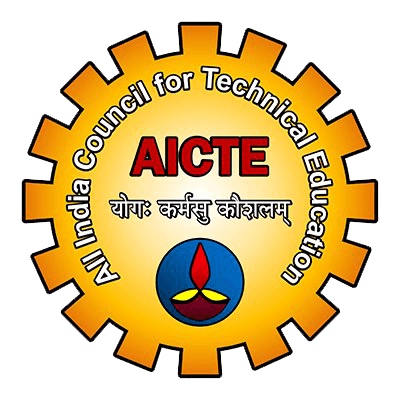

Criteria I – Curricular Aspects
1.1 Curriculum Design and Development
1.1.1 Curricula developed and implemented have relevance to the local, national, regional and global developmental needs which are reflected in Programme Outcomes (POs), Programme Specific Outcomes (PSOs) and Course Outcomes (COs) of the various Programmes offered by the Institution.
1.1.2 Number of Programmes where syllabus revision was carried out during the year
1.1.3 Number of courses focusing on employability/entrepreneurship/ skill development offered by the Institution during the year
MoUs with relevant organizations for these courses
Minutes of the Boards of Studies / Academic council meetings with approval for these courses
Average percentage of courses having focus on employability entrepreneurship skill development
Any Additional Information certificate for employability entrepreneurship
1.2 Academic flexibility
1.2.1 Number of new courses introduced across all programmes offered during the year
1.2.2 Number of Programmes offered through Choice Based Credit System (CBCS)/Elective Course System
1.3 Curriculum Enrichment
1.3.1. Institution integrates cross cutting issues relevant to Gender, Environment and Sustainability, Human Values and Professional Ethics into the Curriculum
1.3.2 Value Added Course
1.3.3 Number of students enrolled in the courses under 1.3.2 above
1.3.4 Number of students undertaking fieldwork/Projects/internships/Student Projects
1.4 Feedback System
1.4.1 Structured feedback and review of the syllabus (semester-wise / year-wise) is obtained from 1) Students 2) Teachers 3) Employers and 4) Alumni
1.4.2 The feedback system of the Institution
Criteria II – Teaching Learning and Evaluation:
2.1 Student Enrolment and Profile
2.1.1 Average Enrolment Percentage
2.1.2 Average percentage of seats filled against reserved categories
2.2 Catering to Student Diversity
2.3 Teaching-Learning Process
2.4 Teacher Profile and Quality
2.4.1 Full time Teachers against sanctioned posts during last 5 years
2.4.2 Number of full time teachers with Ph.D year wise
2.4.3 Average teaching experience of full time teachers in the same institution (academic year 2020-2021)
2.5 Evaluation Process and Reforms
2.5.1 – Number of days from the date of last semester-end/ year- end examination till the declaration of results during the year
2.5.2 – Number of students’ complaints/grievances against evaluation against the total number who appeared in the examinations during the year
2.6 Student Performance and Learning Outcomes
2.6.1 Programme Outcomes and Course Outcomes for all Programmes offered by the institution are stated and displayed on the website and communicated to teachers and students
2.6.2 Attainment of Programme Outcomes and Course Outcomes as evaluated by the institution
2.6.3 Pass Percentage of students
Criteria III – Research, Innovations and Extension
3.1 Promotion of Research and Facilities
3.1.1 Paavai Research Promotion Scheme
3.1.3 Teachers Awarded National / International Fellowship for Advanced Studies/Research
3.2 Resource Mobilization for Research
3.2.1 Grants Received from Government and Non-Governmental Agencies for Research Projects, Endowments, Chairs
3.2.3 Research Guides
3.2.4 Research Projects Funded by Government and Non-Government Agencies
3.3 Innovation Ecosystem
3.4 Research Publications and Awards
3.4.1 Stated Code of Ethics for Research
3.4.2 Number of Ph.D’s Registered
3.4.3 Number of Research Papers in the Journals
3.4.4 – Number of books and chapters in edited volumes / books published per teacher during the year
3.4.5 Bibliometrics of the Publications Based on Average Citation Index in Scopus/ Web of Science/ PubMed
3.4.6 Bibliometrics of the Publications Based on Scopus/ Web of Science – H-index
3.5 Consultancy
3.5.1 Revenue Generated From Consultancy and Corporate Training
3.5.2 Total Amount Spent on Developing Facilities, Training Teachers and Staff for Undertaking Consultancy
3.6 Extension Activities
3.6.2 Number of Awards and Recognition Received by the Institution Students For Extension Activities from Government / Government Recognised Bodies
3.6.3 Number of Extension And Outreach Programs Conducted by the Institution Through NSS/NCC/Red Cross/YRC
3.6.4 Average Percentage of Students Participating in Extension Activities
Criteria IV
Criteria V – Student Support and Progression
5.1.1 Number of students benefited by scholarships and freeships provided by the government
5.1.2 Number of students benefited by scholarships and freeships provided by the institution and non-government agencies
5.1.3 Capacity development and skill enhancement activities
5.1.4 Competitive examinations and career counseling
5.1.5 Redressal of students grievances
5.2.1 Placement details
5.2.2 Students higher education
5.2.3 Students qualifying state/national/international level examinations
5.3.1 Awards and Medals for outstanding performance in sports / culturals
5.3.2 Students council& representation of students in academic and administrative bodies / committees
5.3.3 Sports and cultural events organized by the institution
5.4.1 Alumni association
5.4.2 Alumni’s financial contribution
Criteria VI – Governance, Leadership and Management
6.1 Institutional Vision and Leadership
6.2 Strategic Development and Deployment
6.3 Faculty Empowerment Strategy
6.4 : Financial Management and Resource Mobilization
6.5 Internal Quality Assurance System
6.5.2 : Institutional reviews and implementation of teaching learning reforms facilitated by the IQAC
Assessment of Teaching Learning
6.5.3: Quality assurance initiatives of the institution
Criterion VII- Institutional Values and Best Practices
7.1.1 Measures initiated by the Institution for the promotion of gender equity
7.1.2 Facilities for Alternate Energy Sources
7.1.3 Waste Management
7.1.4 Facilities for Water conservation
7.1.5 Green Campus Initiatives
7.1.6 Quality Audits on Environment and Energy
7.1.7 Disabled – Friendliness & Barrier Free Environment
7.1.8 Institutional Efforts/Initiatives
7.1.9 Sensitization of students and employees of the Institution to the constitutional obligations: values, rights, duties, and responsibilities of citizens.
Details of activities that inculcate constitutional obligations (2015-2016)
Details of activities that inculcate constitutional obligations (2016-2017)
Details of activities that inculcate constitutional obligations (2017-2018)
Details of activities that inculcate constitutional obligations (2018-2019)
Details of activities that inculcate constitutional obligations (2019-2020)
Details of activities that inculcate constitutional obligations
7.1.10 Code of Conduct
7.1.11 Institution celebrates / organizes national and international commemorative days, events and festivals
7.2.1 Best Practices
7.3.1 Institutional Distinctiveness